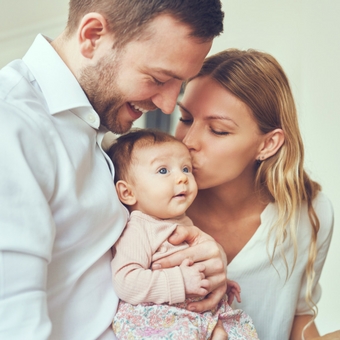A Reminder to Mothers and Fathers – You're Both Still Parents Post-Divorce
Too often children are the biggest casualties of a relationship breakdown. It can be hard work to recreate your parenting relationship into a functioning, healthy one post separation.
Often following a separation, children live primarily with one parent, and this can sometimes leave the other parent feeling marginalised and unsure of their role. This might happen at the point you separated, one parent usually takes a decision to leave the home. It may have been a feature of your parenting relationship before you separated.
Parenting roles and involvement evolve and change over the short term and the long term. Separation is challenging and difficult for parents to manage their own emotions and feelings, and sometimes those adult emotions get in the way, either for a short time or a much longer time, of positive, supportive parenting of the children who are also going through a very difficult period in their young lives.
Some parents choose to walk away, some think it’s too hard to do otherwise. Others think it’s the right thing to do for the children. In my experience it almost never is either the easy or the right thing to do.
In my over 30 years in practice I have seen the effects on children of having no relationship with a parent post-divorce.
As a family law specialist I emphasise to separating couples the need for them to continue their roles as parents and take an active and ongoing role in their children’s’ lives.
If a parent moves out of the family home, it does not and should not mean that they vanish from their children’s lives, nor does their role need to diminish, in fact it can grow in importance with children needing more positive input from both their parents to help them through the difficult time of their parents separation.
The popular media obsesses about the “me” factor. Who gets what in the split? The money, the material assets and “who gets the kids”. Parents will do better for their children by focusing on what arrangements are best for their children’s care and development than on what percentage of time they want to pursue.
Separation and divorce are among the most traumatic experiences people can endure so imagine the potential psychological impact on children. Many children think they are somehow responsible for their parents divorcing, many feel like they are stuck in a tug-o-war with the 2 people they love and trust most in the world. Many can’t express those feeling to either parents and are left feeling lost and afraid.
At such times both parents need to show unity in reassuring their children and striving to achieve a sense of ongoing parental normality post-divorce.
For the parent with whom the children live, this means ensuring they remain connected to the other parent, keeping the lines of communication open, regular visits where possible and shared parenting if this is workable.
Do not assume your children understand or accept the life-changing events that follow a marriage or relationship breakdown. If your child says little about it, it could just be they are unable to express their conflicting emotions.
Embrace the fact that you will always be their parent and that doesn’t change even though you and your partner have parted ways. It is crucial for children in such circumstances to retain relationships with both parents.
It may not be easy, especially if the children don’t live with you all the time. In such circumstances ensure that neither parent retreats from their children’s’ lives. This is the worst thing you could do.
Your role as a Mum or Dad does not stop when the divorce is finalised.
Resist any thoughts that the children will be fine with the parent they live with and won’t need you in their lives. Worse would be assuming that if your ex has found a new partner, this step-parent can assume your role.
To your child, this attitude could be interpreted as you rejecting them and generate enormous emotions of guilt and unworthiness.
Your children will grow to adulthood and your relationship with them now could influence how they regard you for the rest of their lives.
Family lawyers encourage separating couples with children to collaborate on ways to maintain a sense of normalcy for their children. This can mean setting aside any of the issues which contributed to the end of the relationship, and focussing forward on the children’s best interests.
A dispute resolution process known as parenting co-ordination, popular in America and Canada, is also gaining traction in Australia. In its broadest sense it’s aimed at helping children of parents locked in unyielding divorce conflict.
If you find yourself in a high conflict parenting relationship we can advise you about appointing a parenting coordinator. Cassandra Pullos, our firms founder, is a trained parenting coordinator and is available to assist you in that role or to refer you other trained parenting coordinators if that is more appropriate.
The benefits of adopting one of the non-adversarial approaches to working out arrangements for your children post separation, or of appointing a parenting coordinator if you are in a high conflict situation, can be lifelong - for you and your children.
If you need advice or assistance, call us on 07 5526 3646 or email us at cjp@pulloslawyers.com.au and one of our expert family lawyers will be able to assist you. For more information on dispute resolution, contact us here.
